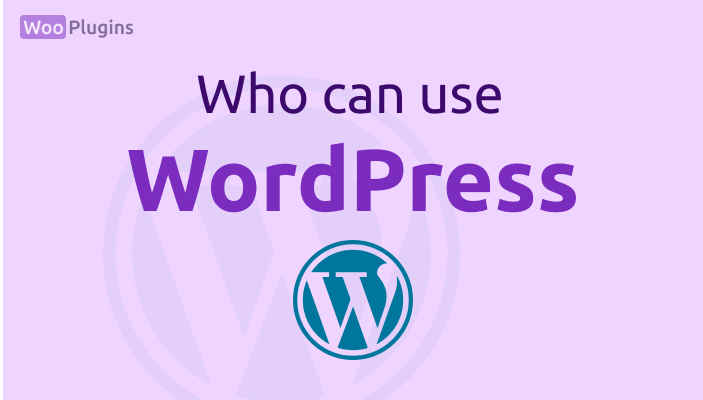WordPress has grown into one of the most popular content management systems (CMS) worldwide. Whether you’re a beginner or an advanced user, WordPress offers unparalleled flexibility, making it suitable for a wide range of purposes. This article will explore the benefits of WordPress, its key features, and answer the question: What is the purpose of WordPress?
Introduction to WordPress
WordPress is a free and open-source CMS that powers over 40% of all websites on the internet. Initially launched in 2003 as a blogging platform, it has evolved into a versatile tool for creating and managing websites of all kinds. With its user-friendly interface and extensive customization options, WordPress has become the go-to choice for individuals and businesses alike.
Benefits of WordPress
1. Easy to Use
WordPress is designed to be intuitive, even for those without technical expertise. Its dashboard is simple, allowing users to add content, customize designs, and manage settings effortlessly.
2. Flexible and Customizable
With thousands of themes and plugins available, WordPress can be tailored to fit any purpose, from blogs to e-commerce stores.
3. Cost-Effective
Compared to custom-built websites, WordPress is an affordable solution. It offers free themes and plugins, and users can scale their investments based on their needs.
4. SEO-Friendly
WordPress is built with SEO in mind. Its clean code structure, permalinks, and SEO plugins like Rank Math make it easier for websites to rank higher on search engines.
5. Scalable
Whether you’re running a small blog or a large e-commerce site, WordPress can grow with your business, supporting increased traffic and advanced features as needed.
Features of WordPress That Make It Ideal for Various Users
1. Customizable Themes and Plugins
WordPress offers an extensive library of free and premium themes and plugins to enhance functionality and design. This allows users to create unique and engaging websites.
2. User-Friendly Dashboard
Its dashboard simplifies content creation, editing, and management, making it accessible even to non-tech-savvy users.
3. Built-in Blogging Capabilities
Originally designed for blogging, WordPress includes robust tools for managing blogs, making it perfect for sharing updates or news.
4. E-commerce Integration
Plugins like WooCommerce transform WordPress into a powerful e-commerce platform, enabling businesses to sell products and services online.
5. Mobile Responsiveness
WordPress themes are responsive, ensuring your website looks great on all devices, from desktops to smartphones.
6. Multi-language Support
Expand your audience by creating multilingual websites using plugins like WPML or Polylang.
7. Security and Updates
WordPress provides regular updates and security enhancements to protect your site from threats.
What Is the Purpose of WordPress?
a. Personal Blogs
WordPress is an ideal platform for sharing personal stories, opinions, or hobbies, thanks to its easy-to-use blogging features.
b. Business Websites
Businesses can use WordPress to showcase their products, services, and brand identity with professional-looking designs.
c. E-commerce Stores
With plugins like WooCommerce, WordPress is a top choice for creating online stores, offering everything from product listings to secure payment gateways.
d. Online Portfolios
Freelancers, photographers, and designers can use WordPress to display their work and attract potential clients.
e. Educational Websites
WordPress supports e-learning platforms by integrating with plugins like LearnDash, enabling the creation of courses and tutorials.
f. Nonprofit and Community Websites
Nonprofits can leverage WordPress to spread awareness, accept donations, and engage with their communities.
Who Can Use WordPress?
a. Entrepreneurs and Small Business Owners
WordPress provides affordable and scalable solutions for growing businesses.
b. Large Enterprises
With its scalability and flexibility, WordPress can handle high-traffic websites and complex requirements.
c. Content Creators and Bloggers
Its user-friendly tools and blogging features make WordPress a favorite among writers and creators.
d. E-commerce Sellers
WordPress, combined with WooCommerce, offers powerful tools for online selling.
e. Developers and Designers
With endless customization options, WordPress is a flexible platform for developers and designers to create unique sites.
f. Nonprofit Organizations
WordPress is budget-friendly and perfect for creating impactful websites that promote social causes.
Benefits of WordPress for Business Growth
a. Cost Savings
Using WordPress reduces the need for expensive development services while delivering professional results.
b. Improved Online Visibility
WordPress’s SEO-friendly features help businesses rank higher in search engine results, attracting more visitors.
c. Enhanced Customer Engagement
Dynamic content, blogs, and interactive features like forms keep visitors engaged and encourage action.
d. Scalability
As your business grows, WordPress can evolve with you, accommodating increased traffic and new functionalities.
Final Thoughts
WordPress stands out as a versatile and powerful platform for individuals and businesses. Its flexibility, affordability, and rich feature set make it the perfect choice for anyone looking to establish or grow their online presence. Whether you’re starting a personal blog, launching an online store, or creating a professional business website, WordPress has the tools to help you succeed.





